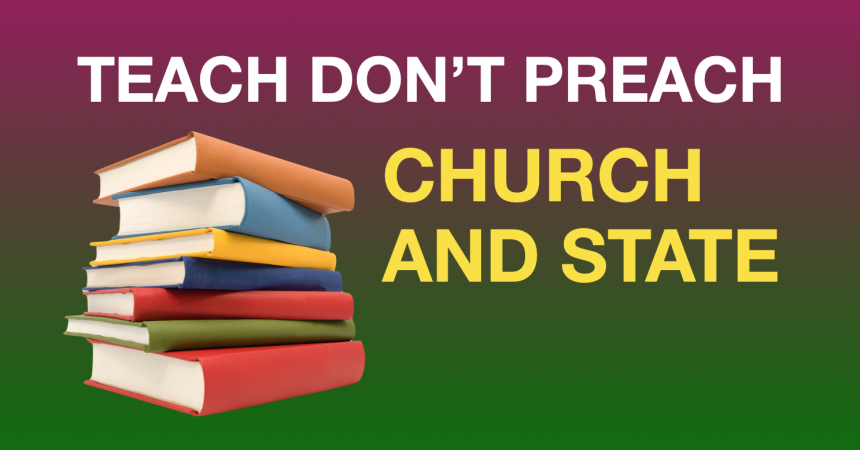
Irish schools require children to respect Vatican codes of conduct that discriminate against gay people
The Irish Times reports that Pope Francis is concerned about what he describes as the “serious issue” of homosexuality and that being gay is a “fashion” to which the clergy is susceptible. He has said that “gay people should not be accepted into ministry”.
It is nothing new that the Catholic Church objects to homosexuality and that its ‘codes of conduct’ forbid same-sex marriage and teaches that homosexual acts are sinful. Gay men and those who support “gay culture” are barred from holy orders.
In 2015 the Irish people changed the Constitution to permit same-sex marriage, so you could be forgiven for thinking that you can just ignore what Pope Francis had said about the sexuality of your friends or the people that you love.
Unfortunately, it is not that easy as the Irish education system teaches children that they must respect and demonstrate respect for ‘codes of conduct’ that influence the way people live in a range of belief traditions.
This, of course, includes respecting codes of conduct arising from the beliefs of the Catholic Church on homosexuality.
Schools curtail the right to opt out of religion classes
The Irish Constitution obliges the State to respect and honour religion, but it doesn’t say that all children should be taught to respect and honour codes of conduct arising from religion. It recognises the inalienable rights of parents and it guarantees the right to opt out of religion classes.
But this right to opt out is curtailed by schools. Some schools use coercion and others force students to take these courses. The Department of Education and the NCCA enable this abuse of rights by claiming that these courses are suitable for all and that there is no need for anyone to opt out.
These courses undermine pluralism and the rights of parents and their children. In 2018 parents are still left in a position that they must fight for their rights and the rights of their children in the education system.
Right to Freedom of Conscience, Religion and Belief
The right to Freedom of Conscience, Religion and Belief belongs to people, not to their beliefs.
There are irreconcilable differences between religions, between religions and beliefs, and between religions and non-religious philosophical convictions. Recognising and respecting those differences is pluralism.
Having learning outcomes that teach children to respect and demonstrate respect for religious beliefs undermines pluralism. It also undermines the right of parents to ensure that the teaching of their children is in conformity with their convictions.
The former UN Rapporteur on Freedom of Religions and Belief, Heiner Bielefeld stated that:
“Rights holders are human beings who may exercise these freedoms as individuals and in community with others. While this may sound like a truism in the context of human rights in general, the right to freedom of religion or belief has sometimes been misperceived as protecting religions or belief systems in themselves.
This misperception is the source of much confusion, as it obfuscates the nature of freedom of religion or belief as an empowering right. Ignoring that may lead to the wrong assumption of an antagonism between freedom of religion or belief and freedom of expression.
Thus, it may warrant highlighting that freedom of religion or belief protects believers rather than religions or beliefs.” HeinerBielefeldForb G1529111
NCCA curriculum courses that undermine pluralism
In 2019 the Department of Education is introducing a new specification for Religious Education at second level that teaches children:
“to develop knowledge, understanding, skills, attitudes and values to enable young people to come to an understanding of religion and its relevance to life, relationships, society and the wider world.
It aims to develop the students’ ability to examine questions of meaning, purpose and relationships, to help students understand, respect and appreciate people’s expression of beliefs, and to facilitate dialogue and reflection on the diversity of beliefs and values that inform responsible decision-making and ways of living.”
At primary level, the Department of Education through the GMGY course in Community National Schools will teach children to respect and demonstrate an understanding of, and respect for, the codes of conduct that influence the way people live in a range of belief traditions. One of the purposes of the Goodness Me, Goodness Course in Community National Schools is to promote Religiosity. FOIGMGYReligiosityAppendix4
Both these courses were developed by the National Council for Curriculum and Assessment, who have been instrumental in ensuring that the option of picking another subject if students opted out of Religious Education at second level was scrapped.
Despite the enormous changes in Ireland, and the push for separation of church and State, the Department of Education through the NCCA has developed curriculum courses that teach children to respect beliefs and codes of conduct that influence the way people live.
Many people disagree on conscientious grounds with those beliefs and codes of conduct. Learning outcomes that expect children to respect those beliefs breach human rights and undermines pluralism.







0 Comments
No comments!
There are no comments yet, but you can be first to comment this article.